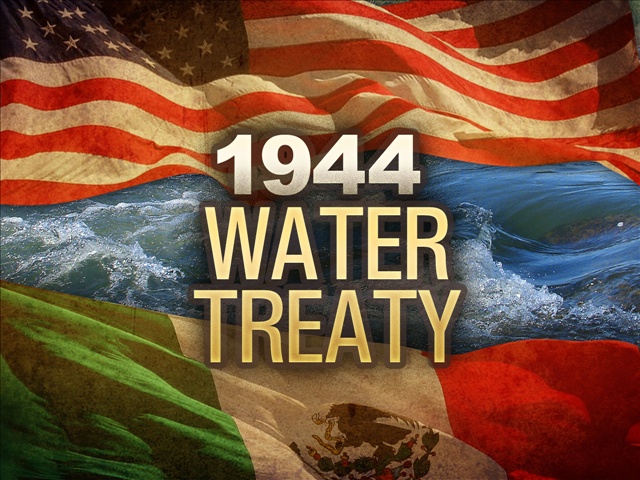HARLINGEN — Texas Gov. Greg Abbott announced Thursday a deal has been reached with Mexico to ensure it fulfills its treaty obligations to release water into the Rio Grande system.
The agreement means U.S. residents and agricultural interests will be able to access the flows for drinking water and irrigation as part of a 1944 water-sharing agreement between the two countries.
The treaty requirement holds Mexico to release 1.75 million acre-feet of water into the Amistad and Falcon international reservoirs during a five-year cycle.
The current cycle was set to end Oct. 25, with Mexico in significant arrears on its treaty obligation.
At the end of July, Mexico owed an additional 418,829 acre-feet to make good on the five-year treaty requirement. The final flow of water to meet the treaty objectives is about 105,000 acre-feet.
“This agreement helps ensure that water obligations will be met before the end of this cycle, providing a much-needed resource to communities in the region,” Abbott said in a statement. “This water is essential for Texans along the Rio Grande to grow crops, provide food, and support local municipalities and businesses.
“Thank you to TCEQ (Texas Commission on Environmental Quality) and Secretary Pompeo (Secretary of State Mike Pompeo) for working diligently with Mexican officials to secure this agreement and fulfill the terms of the treaty,” the governor added.
The International Boundary and Water Commission has been lobbying Mexican officials vigorously for them to live up to their treaty requirements.
“We appreciate the efforts by Mexican government officials to fulfill their treaty obligations on time,” said IBWC Commissioner Jayne Harkins. “This agreement sets us on a path to improve Rio Grande management in the future to the benefit of both countries.”
Humberto Marengo, commissioner of CILA, the Mexican section of the IBWC, said Mexico has always been committed to its treaty obligations.
“I appreciate the humanitarian support offered by the United States so that, if needed, the Mexican communities that depend on the Rio Grande for their supply will have the necessary backing to cover their municipal needs, as established in Article 4 of Mexico’s Constitution,” Marengo said.
There are six Mexican rivers and streams covered by the water treaty — the Conchos, Arroyo las Vacas, San Rodrigo, Escondido, Salado and San Diego. Of these, only the Rio Conchos, which enters the Rio Grande near Presidio, and the Salado River, which flows into Falcon International Reservoir, are significant.
Of those six rivers, the treaty stipulates that the United States will receive one-third of the flow, which Mexico is required to release from dams into the Rio Grande watershed.
But Mexican officials have been reluctant to release the water that would satisfy their treaty requirements due to protests by Mexican farmers who want to ensure they have enough water for irrigation.
In February, Mexico President Andres Manuel Lopez Obrador was forced to call out National Guard troops to block Mexican farmers from seizing two dams on the Rio Conchos, the La Boquilla dam and another near the city of Ojinaga.
The additional flows into the Rio Grande system will be welcome.
As of Thursday, Falcon International Reservoir was only at 21-percent capacity, and Amistad Reservoir at 37-percent capacity.





